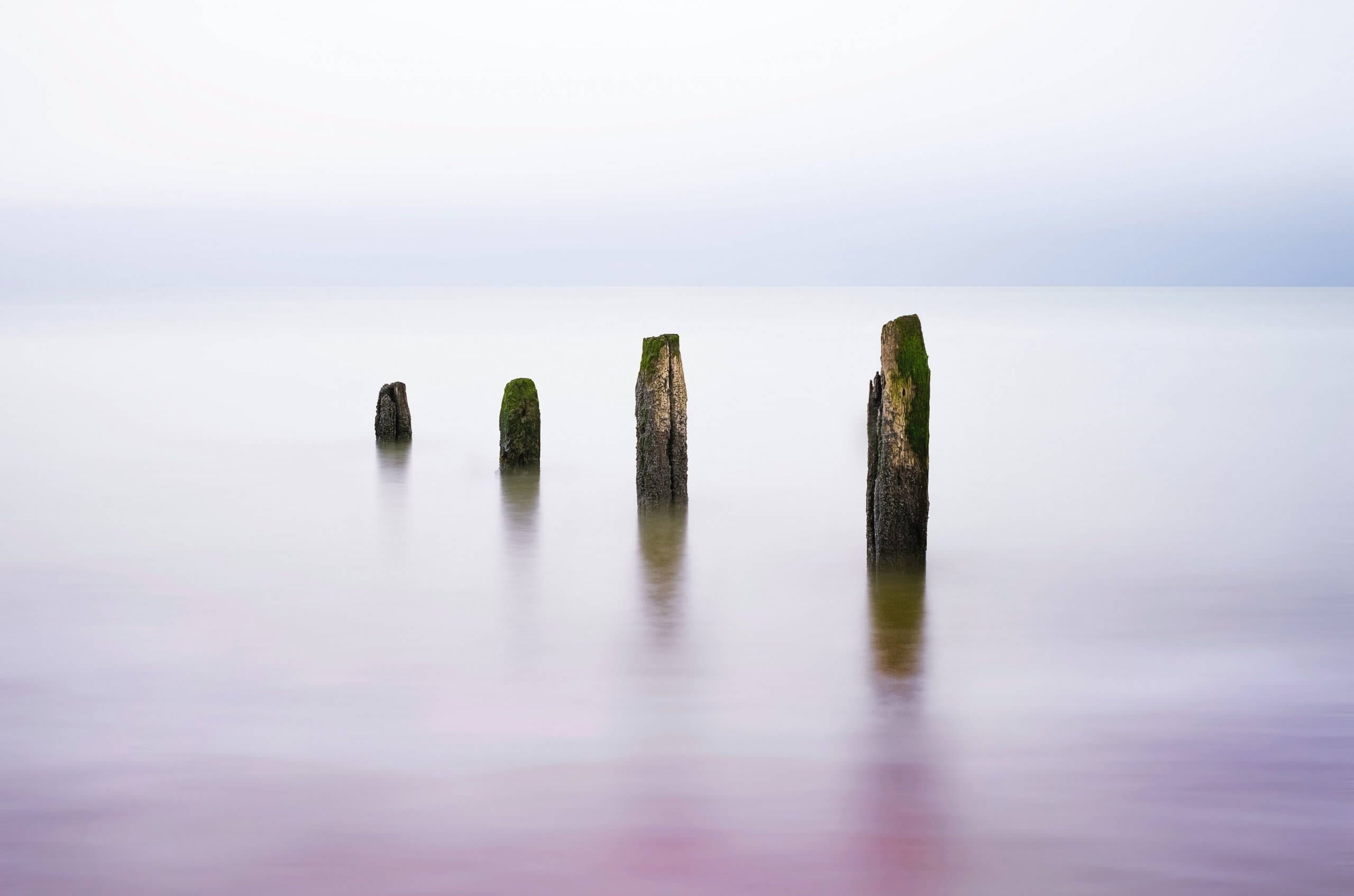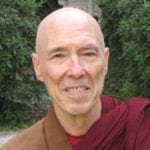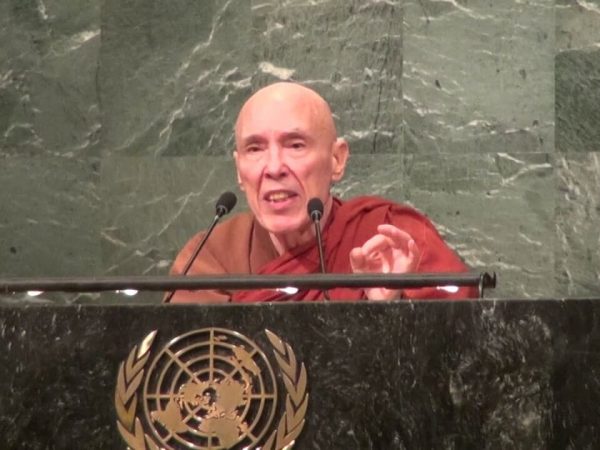What does it mean to wake up today, in the midst of this modern life?
If ‘waking up’ has something to do with the way we meet life, what is our sense of what an ‘awakened’ (or at least, a ‘more awakened’) meeting with life might involve? What do we imagine it might look like? And in our notion of ‘Meeting Life’, what exactly do we mean when we say ‘Life’?
If climate change is a Human Rights issue, it must then be an ethical issue; and if it is an ethical issue, it must be a Dharma issue.
For modern ‘Life’ (however we construe it) now inevitably includes an awareness of a whole range of uncomfortable but undeniable facts about itself, about our collective situation and how we shape it through our choices and actions. At times of course it can feel tempting to try to avoid this awareness and the questions and emotions it might bring up for us. To live wakefully and authentically, however, we have to endeavour instead to somehow broaden the range and reach of our hearts and our questioning, and with it the compass of what the Dharma means today.
We live together on a planet of now more than 7 billion human beings (and rising), and with all the immense and almost overwhelmingly complex challenges that we (and other species) are facing, we might wonder whether humanity is equipped, practically or philosophically, to meet such unprecedented and elaborately interacting issues as climate change, massive species extinctions, depletion of resources, unsustainable consumerism and runaway economic systems and all the suffering that these already cause and will cause in coming years.
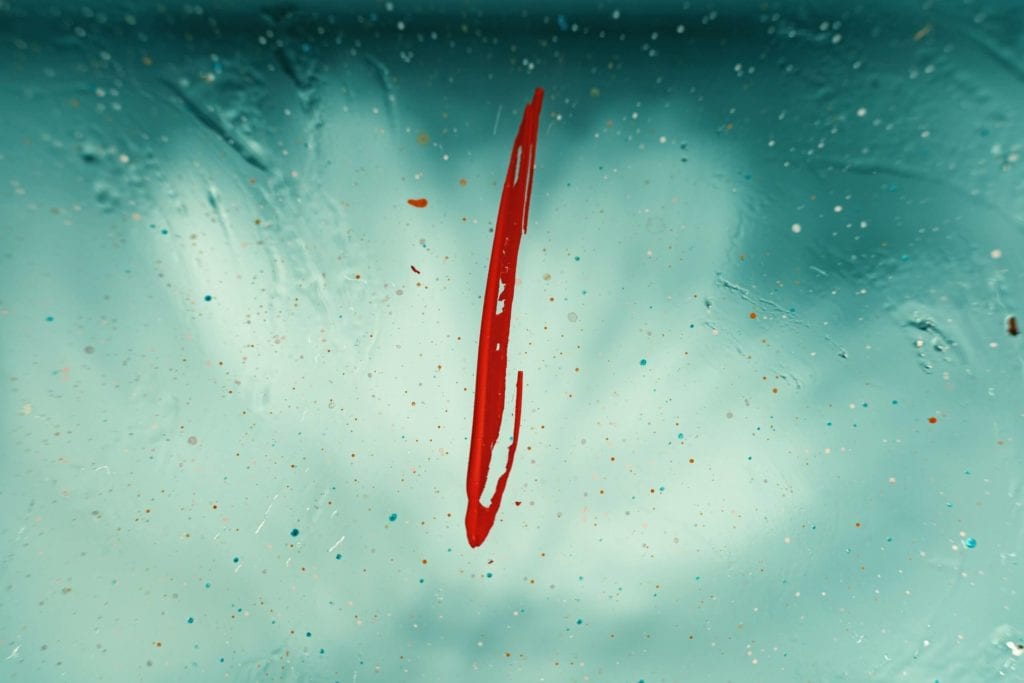
Of course, the responses of the heart and the beauty and necessity of empathy and compassion are all vitally important in relating to all this, but I have explored those aspects at length a number of times elsewhere, and in what follows, I would like to try to emphasise instead the qualities of clarity and unflinching honesty. I hope you can ponder this article within a larger context of necessarily diverse approaches to these themes.
So then, although it’s nearly impossible, because it’s entangled with all the others, let’s try to tug at just one thread of this daunting knot of our times, from a Dharma perspective:
Somehow each of us needs to find his or her ways to hold such pressing ethical questions so that these questions open us, rather than shut us down.
Though often conceived of as an ‘environmental’ issue, anthropogenic global warming is also probably the biggest Human Rights issue the world has ever faced. For we know, almost with certainty, a stark truth: as a result of global climate destabilisation, alongside the wholesale devastation to other species, many millions, or even billions of (mostly poor) human beings will be confronted with practically unavoidable death and suffering by starvation, water shortage, loss of land and displacement through droughts and flooding, increased disease, extreme weather events and doubtless brutal regional conflicts fuelled by resource scarcities.
Now, if climate change is a Human Rights issue, it must then be an ethical issue; and if it is an ethical issue, it must be a Dharma issue, because the Dharma path is based on ethics (sīla), and should also have as a measure of its fruit the expression of ethical care. (Many of us feel that it would be an ethical issue even if no humans at all were affected but only non-human nature, that the circle of moral consideration needs to expand to include a deep valuing of the natural world, in and of itself. But, for now, we’ll just consider the human-to-human moral questions.)
In a world nightmarishly slow to address the moral and practical challenges of climate change, a sufficiently large segment of humanity must venture beyond spoken platitudes to raise the essential moral questions to a primary place in society’s discourse.
We should perhaps pause here already, as it can be hard not to feel turned off considering all this. Talk of such enormous human and non-human misery, such irretrievable loss, the powerlessness and inertia we feel and witness can feel burdensome and oppressive. And in the West, ‘morality’ can often bring with it a habitually and historically associated sense of heaviness and repression, or possibly even guilt, which is rarely helpful. Naturally we may rather want to hear and think about things that make us feel good. “Where is the joy?” we might ask, from lives that might feel already burdened with busyness, complexity and demands. “Can’t someone talk about this in a way that inspires?” But maybe, given the perhaps unparalleled complexity, diversity and obscurity of the psychology underneath our collective inertia and inadequate responses to the climate emergency, the task of inner transformation will call for, and call forth, a whole spectrum of voices and emotional pitches and timbres, and some of them simply won’t be joyful or easy. We can learn, though, to simply include it all in what we ask the heart to hold, what we train the mind to contemplate.
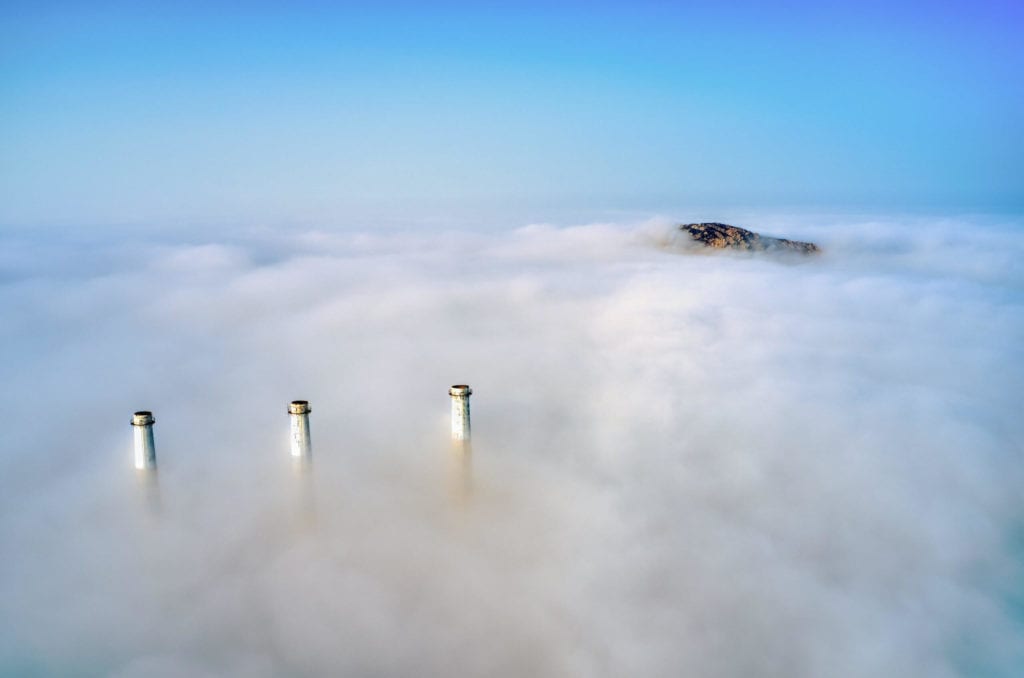
A few years ago, in a stab to remove talk of crisis from contemporary environmentalism, someone made the interesting point that Martin Luther King Jr., in the ethical struggle of the Civil Rights movement, inspired by raising his dream as a vision. He did not proclaim “I have a nightmare”; that wouldn’t have fired the imagination. But, as James Gustav Speth wrote in response, ‘he did not need to say it. [African-Americans in the 1960s] were living a nightmare. They needed a dream. But we, I fear, are living a dream. We need to be reminded of the nightmare ahead.’ What does it mean to wake up from this dream?
Whatever our reaction to hearing or reading about the environmental situation and its moral aspects, somehow each of us needs to find his or her ways to hold such pressing ethical questions so that these questions open us, rather than shut us down. How will you and I keep truly alive in our own hearts and minds and in the Dharma community an open investigation into what sīla means for us in this modern age?
We cannot trace a direct one-to-one causal connection between, say, that flight I took, and a particular person’s misery and hunger through drought. But we do know that there is a connection.
It seems a crucial first step that we do. Because if climate change is fundamentally an ethical issue, and so a Dharma issue, I wonder further if it behoves me, as a Dharma teacher, to demonstrate moral leadership here in one way or another. Reflecting on what forms that might take, two paths immediately suggest themselves as indispensable. Firstly, what I say, write and teach must speak deeply to the sīla aspects of these issues. Surely, from somewhere, somehow, the fires of ethical concern must be lit. In a world nightmarishly slow to address the moral and practical challenges of climate change, a sufficiently large segment of humanity must venture beyond spoken platitudes to raise the essential moral questions to a primary place in society’s discourse. And secondly, I have to express more than words that sound good. In order to be real, ethics need to materialise, to be made manifest in behaviour as well as speech. We may need care here, however: to be too rigidly prescriptive in terms of behaviour tends to make many people feel understandably nervous and deprived of a degree of freedom. Unskilful rigidity tends to inspire little support, or, at worst, may even end up provoking a defiant backlash. If we let go, though, of such inflexible ‘rules’, we must still find ethics to guide us, and what these might be is still open for our exploration.
To live wakefully and authentically, we have to endeavour to somehow broaden the range and reach of our hearts and our questioning, and with it the compass of what the Dharma means today.
Most Buddhists may want to look to the teachings of the Buddha for direction. But the Buddha did not live and teach in a fossil-fuel-based, industrially globalized world of 7 billion people with an awareness of the disastrous cumulative effects of their actions on countless present and future lives. The moral precepts he taught, beautiful and vital as they are, were commensurate with the nature of his society at the time, and simply may not be, as they stand, complete enough, wide enough for our age. We may need to look elsewhere for additional guidance.
The Dalai Lama recently met with scientists, philosophers and religious leaders from around the world at the Mind and Life Conference convened to discuss the global environmental crisis. He stated his opinion that religions, including Buddhism, East and West, have become “part of the status quo, part of the problem, and need to become instead part of the solution.” Recognising that the multiple environmental crises have many of their roots in unquestioned economic thinking and untrammelled consumerism, he went on to say that Buddhism and other religions “need to challenge greed and consumerism in the world much more deeply, and need to start contemplating and addressing larger socio-economic and environmental issues in their teaching.”
Perhaps we fear we may miss out relative to others, or lose our standing or status.
We humans have known about climate change for a while now; at least since the first IPCC report in 1990. To the Dalai Lama’s statement we could add that this knowing exactly how we are causing devastating climate change and our concomitant lack of appropriate responses to curtail emissions are, from a Buddhist point of view, almost classical examples of the work of delusion and greed, two of the root afflictions that Dharma teaching and practice is supposed to uproot. Shouldn’t we then expect modern Dharma to be vigorously and emphatically addressing these manifestations of delusion and greed in ourselves and in our societies, and particularly the ways they fuel the almost incalculable present and future suffering of global warming? The Dalai Lama is effectively saying he does not see much substantial evidence of this yet within Buddhism, and he feels it needs to change.
Our modern Dharma must include environmental ethics as equally as any other of the traditional ethical guidelines. My hope is that these can become integrally woven into the vision that we have of what the Dharma is and involves. Just as most practitioners might expect, say, ethics around sexuality to be manifest in a ‘Dharma life’ and certainly a teacher’s life, so we might also expect environmental ethics, kindness and care to have comparable importance. And their absence from any ‘Enlightenment’ or ‘path of wakefulness and kindness’ would similarly call into question for us, on a gut level, the authenticity, reality and fullness of that ‘Enlightenment’, that ‘wakefulness’ and that ‘kindness’.
It seems harder to enthuse over pending sacrifices. We need, however, to be able to be moved to action in the absence of the emotion of enthusiasm.
Visibility matters here. The perception of all those who come to, or even consider coming to, Gaia House matters. As in other areas of modern moral concern in our culture, it is important to communicate a moral message loud and clear – to be transparently and visibly diverse, for instance, and not institutionally racist or institutionally sexist. Gaia House has done remarkably well in recent years in terms of the carbon footprint of the building itself, and this crucial work is to be celebrated. Great credit is due to all those involved. Now the Gaia House teachers would also like to get involved. Hopefully, as mentioned, we can begin to communicate widely this message of environmental ethics (and the associated Human Rights ethics) and their centrality in the Dharma. In addition, and as a very modest start, we have made a number of small requests to the Gaia House Trust, recognising at the same time that in the longer term a bigger shift in the way teachers and teachings are offered internationally may well be needed. We know that on their own these measures hardly represent a significant shift, but, without knowing exactly what the next steps might involve or require, we hope this will be a genuine beginning.
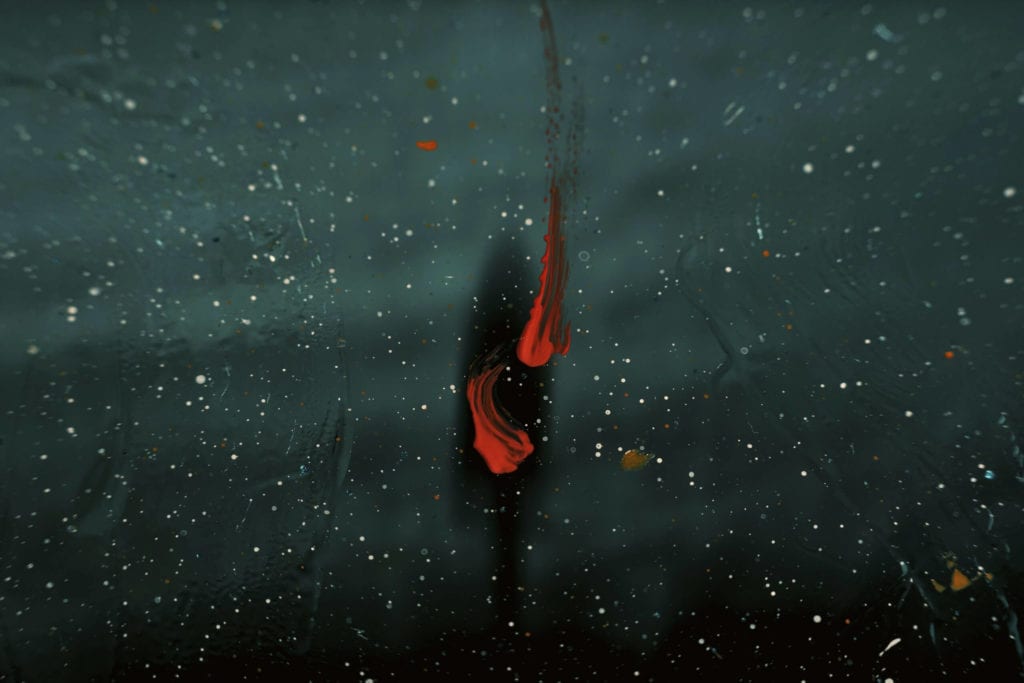
We also recognise that the vague hope that from somewhere there will arrive for us a technological fix to rather effortlessly remove the whole problem is an illusion and a part of the dreaming, the being asleep. Waking up will involve sacrifices for everyone. And this may be difficult. We, and indeed the network of Dharma centres, have long been accustomed to having relatively easy access to a great deal of all kinds of things (and not just obviously material things), and somehow we, like most people, expect this abundance to continue. As individuals, and as institutions like retreat centres, we must admit that we might have the same reluctance that can be witnessed at the inter-national level to give up and have less when we might not see others doing the same. Perhaps we fear we may miss out relative to others, or lose our standing or status.
In the midst of almost certainly the defining issue of our time, and as we move together towards a very uncertain future, what do, what will contemporary Dharma teachings counsel, model and express?
Of course, it can be a lot more uplifting and attractive to talk of community projects that we can feel enthusiastic about, e.g. the installation of the biomass boiler, and this is hugely important psychologically (and obviously practically). But it’s also true that the biomass boiler involves no loss at all for anyone. It seems harder to enthuse over pending sacrifices. We need, however, to be able to be moved to action in the absence of the emotion of enthusiasm. There are anyway other potential sources and channels for our enthusiasm: in re-visioning together how Gaia House operates within the system of international Dharma teaching for instance, in spirited protest at Government policies, and perhaps, even, in civil disobedience.
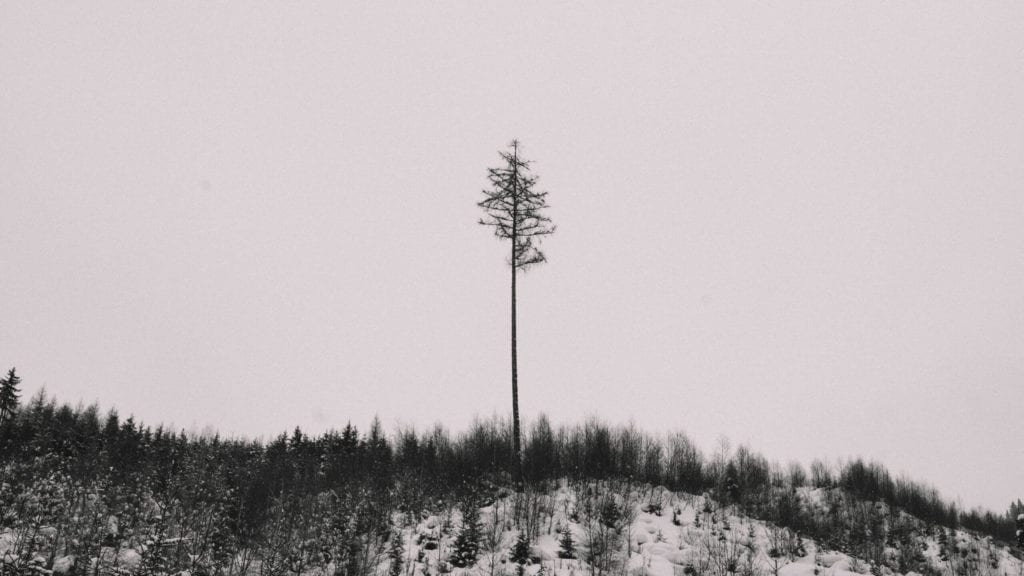
Bringing all this into the scope of what Dharma practice means may not be easy or comfortable for any of us. It can be difficult and unsettling when one dwells on these ethical questions. We might realize how many of the decisions that we make, individually, collectively, or institutionally as a retreat centre, are effectively, in part, statements of valuing some things over others. How many tonnes of personal carbon emissions, above what I need to survive (what are termed ‘luxury emissions’), can I justify, even if it’s ‘for the Dharma’, knowing that any extra I emit might mean a future human being will not have even enough to survive (‘subsistence emissions’)? We need to be clear and honest here what we are deciding and implying matters more than the lives of certain others. Of course this is not a simple ethical problem. We cannot trace a direct one-to-one causal connection between, say, that flight I took, and a particular person’s misery and hunger through drought. But we do know that there is a connection. And just because ethical problems like this may feel dishearteningly complex and unfamiliar, that does not mean that we shouldn’t try to feel or think our way through them. Because what could I say to convince this future person that I am making a morally right choice? The fact that they are not yet born or are still too young, far away or poor to know or complain can take some of the stark discomfort of it away, but it still exists as a moral dilemma given what we now know. Reflecting on the ways we do things from the perspective of caring for future human beings can feel uncomfortable to say the least, and such contemplations may not be completely welcome inclusions into my practice, especially if I have come to meditation and the Dharma understandably seeking inner simplification and the calming of agitation. These pressing questions are not simple, however, and it may well be that a degree of agitation accompanies earnest and engaged inquiry and reflects a healthy ethical sensitivity.
We don’t know exactly what will be asked of us as teachers or as a retreat centre in the coming months and years, but if we are too quick to refuse to consider certain possibilities, changes, and sacrifices that would make a difference, we might also need to inquire a little more searchingly, lest we be then not too far from President Bush Sr. ‘explaining’ the US refusal to ratify the Kyoto Protocol by stating that “The American Way of Life is not up for negotiation.”
We do not want the Dharma and Gaia House to mimic the wider failure of governing bodies to change anything really significant, so we ask for your feedback, ideas and support. In the midst of almost certainly the defining issue of our time, and as we move together towards a very uncertain future, what do, what will contemporary Dharma teachings counsel, model and express?
